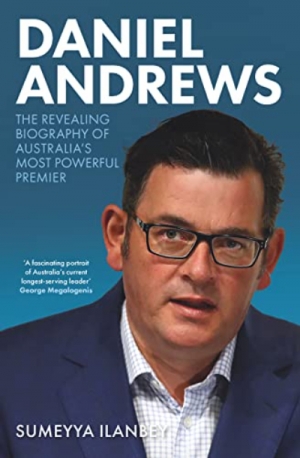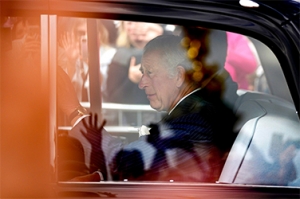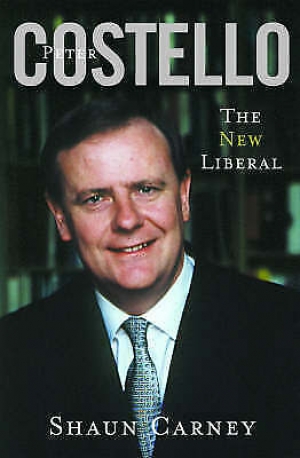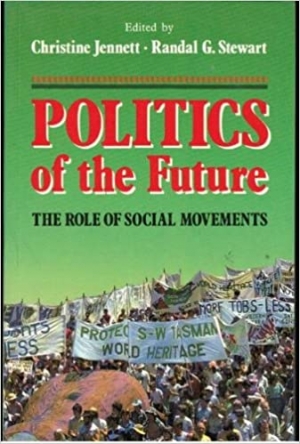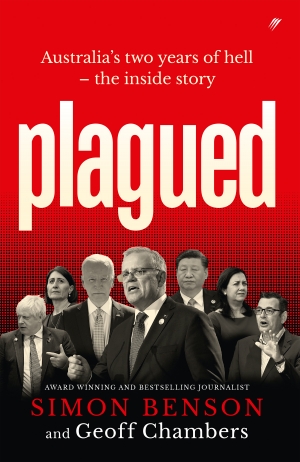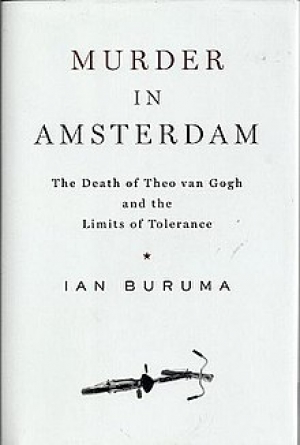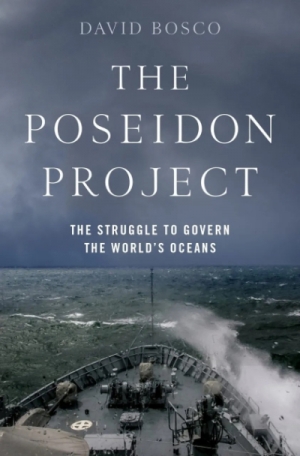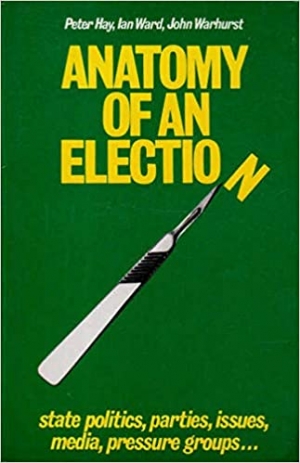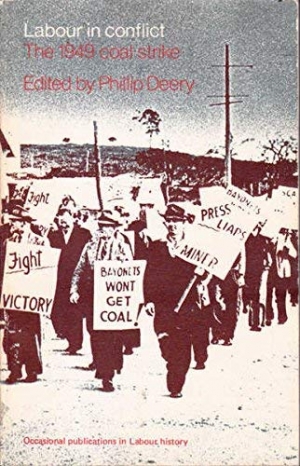Politics
Gideon Haigh reviews 'Daniel Andrews: The revealing biography of Australia’s most powerful premier' by Sumeyya Ilanbey
During his first electoral campaign, Daniel Andrews hung a sign in his office containing a timeless political wisdom from Lyndon Baines Johnson: ‘If you do everything, you will win.’ He has continued taking it literally. Australian politics has, it is agreed, few harder workers than Victoria’s premier: he is in the same class as LBJ, who famously said that he seldom thought about politics more than eighteen hours a day.
... (read more)Has anyone else been chuckling upon hearing the words ‘Charles III, king of Australia’? In my household, the movie Anchorman is a sacred text, and its buffoonish 1970s news anchor protagonist Ron Burgundy is our holy fool. So devoted is our fandom that we own the Anchorman out-takes DVD. In one scene that was cut, the ambitious and glamorous television journalist Veronica Corningstone confides to Burgundy that she dreams of being the first female network news anchor.
... (read more)John Button reviews 'Peter Costello: The new Liberal' by Shaun Carney
Selling books is a difficult business. Publishing, too. Booksellers and publishers need courage and imagination. A book about a contemporary Federal politician with the adjective ‘new’ in the title displays both these qualities. Tony Blair may have got away with ‘New Labour’ in Britain. In Australia, a large part of the disenchantment with politics and politicians stems from the feeling that, apart from the fresh face of Natasha Stott-Despoja, there’s nothing new around; no new ideas, no articulated vision of where the country might be in ten- or twenty-years’ time, nothing inspirational. Perhaps something might emerge before the next election. But no one’s holding their breath.
... (read more)The most imaginative, although in all probability the least politically effective, of the campaign badges produced for the current Australian elections is the ALP Badge, ‘the light on the hill’. The badge, a simple cloisonne in blue and red with gold wire, symbolises the hopes of that great Australian, J.B. Chifley.
... (read more)James Jupp reviews 'The Politics of the Future: The role of social movements' by Christine Jennett and Randal G. Stewart
Twenty years ago there was a fashion in American political science of putting together collections of articles under a generic title such as ‘Political Parties in Developing Nations’. As with so many other American fashions, this spread to Australia and the edited collection is now commonplace in the social sciences. The problem with all such collections, and it applies to this one, is the apples and pears syndrome – not all fruits are the same despite their common classification.
... (read more)Joshua Black reviews 'Plagued: Australia’s two years of hell – the inside story' by Simon Benson and Geoff Chambers
Scott Morrison needn’t waste time writing a political memoir: the work of self-vindication has already been attempted on his behalf by Simon Benson and Geoff Chambers, both columnists at The Australian, in their now highly controversial book Plagued: Australia’s two years of hell – the inside story. Theirs is a largely heroic story about Morrison’s leadership, which ‘served the nation well’ amid a ‘most extreme period of adversity’.
... (read more)Elisabeth Holdsworth reviews 'Murder in Amsterdam: The death of Theo van Gogh and the limits of tolerance' by Ian Buruma, and 'Infidel' by Ayaan Hirsi Ali
Theo van Gogh, born into a celebrated family, made himself famous, and infamous, in the Netherlands for his outrageous opinions, such as accusing the Jewish lord mayor of Amsterdam, the son of Holocaust survivors, of being a Nazi sympathiser. According to Ian Buruma, the author of Murder in Amsterdam: The Death of Theo van Gogh and the Limits of Tolerance (2004), when van Gogh made the controversial film Submission with the Muslim activist turned politician Ayaan Hirsi Ali, Buruma thought that this would be seen as another of his national ‘village idiot’ gestures. There was no intention to draw more than imaginary blood. Van Gogh had lived his whole life secure in the knowledge that in the Netherlands he was onze Theo (our Theo), and that what he was free to deride because of Article 23 also protected him. But to Muslim fundamentalists, freedom of speech is anathema. God, and his representatives, decide what is and can be said. In this mindscape, this very freedom of speech, as espoused in the Netherlands, proves that the country is an infidel state.
... (read more)Killian Quigley reviews 'The Poseidon Project: The struggle to govern the world’s oceans' by David Bosco
In early 2020, as the SARS-CoV-2 pandemic took hold, a special kind of viral hazard appeared upon the surface of the sea. Offshore from Sydney, Yokohama, San Francisco, and elsewhere loitered cruise liners turned floating hot spots. As they awaited permission to dock and disembark their passengers, the boats became an inadvertent exhibition of cruising-industry foibles. Behind sluggish and patchy Covid action plans, we learned, lurked other forms of misbehaviour, from grotesquely unscrupulous labour practices to systematic tax avoidance. The high seas, it seemed, really were wild.
... (read more)Derek Duke reviews 'Anatomy of an Election', edited by P.R. Hay, I. Ward, and John Warhurst
For many years there has been little study of politics and elections at the state level in Australia. It seems to have been assumed that only national politics is really important, and that voters made very little distinction between state and federal politics. Thus, the conventional wisdom on electoral behavior had it that voters reacted fairly predictably on the basis of their early political socialization and in response to a set of vague images of the parties which was generated largely at the national level and changed only slowly.
... (read more)Geoff Muirdon reviews 'Labour in Conflict: the 1949 coal strike', edited by Phillip Deery
One of the great merits of Phillip Deery’s presentation is the way in which he shows the immediacy of the coal strike: its great significance in changing the lives of the miners and in transforming the political situation in New South Wales. It was a time of great bitterness, in which those who expected the interests of the Labor movement and the Labor Party to converge, considered themselves betrayed. Nor did the swiftness of the Chifley government in moving to crush the miners’ strike garner them any favour in the public’s eyes. The public considered the hardships brought about by the coal strike to be merely the latest in a series of events that seem destined to threaten their comfort and standard of living. The communists were blamed for the strike, probably unjustly, for although there were communists among the miners, the vast majority were non-communists with legitimate grievances against the mining companies.
... (read more)
